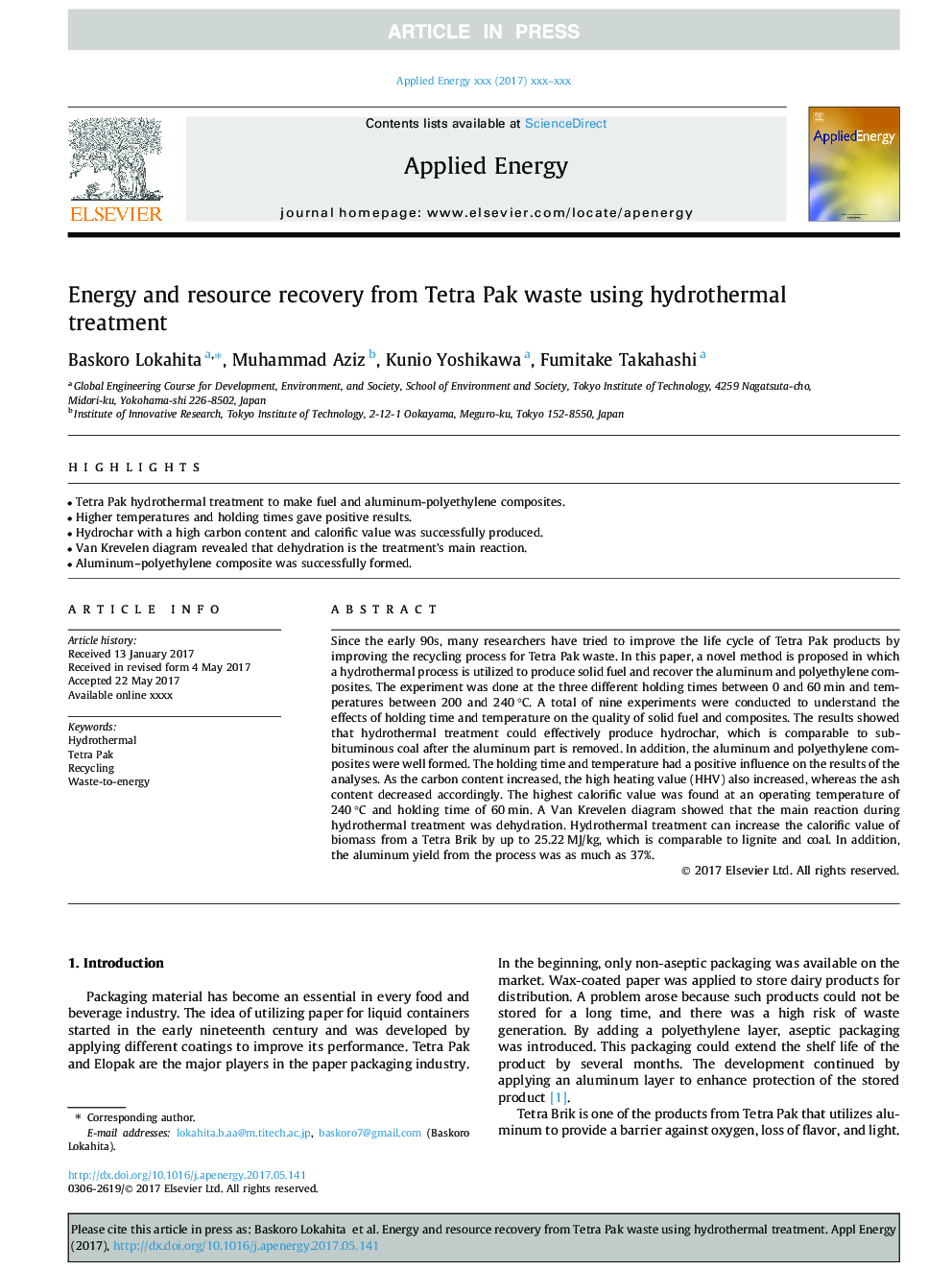| Article ID | Journal | Published Year | Pages | File Type |
|---|---|---|---|---|
| 6681859 | Applied Energy | 2017 | 7 Pages |
Abstract
Since the early 90s, many researchers have tried to improve the life cycle of Tetra Pak products by improving the recycling process for Tetra Pak waste. In this paper, a novel method is proposed in which a hydrothermal process is utilized to produce solid fuel and recover the aluminum and polyethylene composites. The experiment was done at the three different holding times between 0 and 60 min and temperatures between 200 and 240 °C. A total of nine experiments were conducted to understand the effects of holding time and temperature on the quality of solid fuel and composites. The results showed that hydrothermal treatment could effectively produce hydrochar, which is comparable to sub-bituminous coal after the aluminum part is removed. In addition, the aluminum and polyethylene composites were well formed. The holding time and temperature had a positive influence on the results of the analyses. As the carbon content increased, the high heating value (HHV) also increased, whereas the ash content decreased accordingly. The highest calorific value was found at an operating temperature of 240 °C and holding time of 60 min. A Van Krevelen diagram showed that the main reaction during hydrothermal treatment was dehydration. Hydrothermal treatment can increase the calorific value of biomass from a Tetra Brik by up to 25.22 MJ/kg, which is comparable to lignite and coal. In addition, the aluminum yield from the process was as much as 37%.
Related Topics
Physical Sciences and Engineering
Energy
Energy Engineering and Power Technology
Authors
Baskoro Lokahita Baskoro Lokahita, Muhammad Aziz Muhammad Aziz, Kunio Yoshikawa, Fumitake Takahashi,
